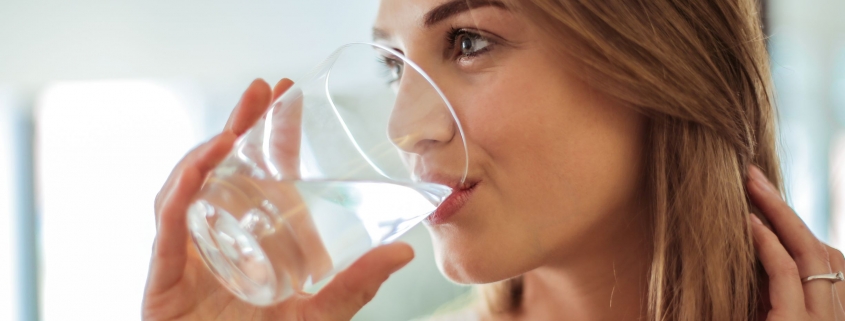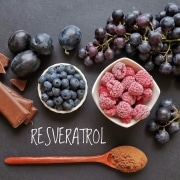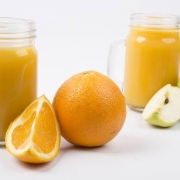Experience the Surprising Benefits of Proper Hydration

Each glass of water fills up your tank—lifting you closer to levels of healthy hydration. You knew that, though. And you’re likely familiar with the benefits of proper hydration. That’s why you’re counting ounces, glasses, or bottlefuls. The connections between hydration and health run deeper than you may have previously even thought, though.
There are many well-known hydration benefits, including:
- Maintaining healthy fluid and key electrolyte balance
- Supporting skin health
- Helping maintain healthy saliva production
- Aiding in optimal digestion
- Maintaining kidney health
- Supporting proper elimination of waste
- Playing a role in optimal nutrient absorption
- Maintaining joint health
- Supporting healthy temperature regulation (through water’s role in sweating)
- Helping maintain the health of your blood supply
That’s an impressive list of important, wide-ranging benefits of proper hydration. But that’s only the beginning of what healthy hydration can mean for your overall wellness. Pour a tall glass of water, and dive into the exciting—and sometimes surprising—connections between hydration and health.
Healthy Hydration Levels Help Optimize Weight-Management Efforts
Water is heavy. And it makes up a significant portion of your body weight. That’s why boxers sweat off pounds before weighing in.
While you might not want to drink a liter of water before jumping on the scale, maintaining proper hydration is good for your long-term weight-management goals. Study after study strengthens the case for many weight-related benefits of proper hydration. And it can make an impact on the number you see on the scale in a few ways.
The first is satiety. Water makes you feel full. Researchers have found drinking water before meals—30 minutes prior seems to be the best timing—helps you eat fewer calories. And consuming fewer calories drives progress toward weight-management goals.
Second, thirst is often mistaken for hunger. This error can lead people to snack when they are really just thirsty. Staying properly hydrated—drinking water before you’re thirsty—will help you avoid a calorie-intensive mistake.
Drinking enough water may help support the maintenance of a healthy metabolic rate, too. Studies show ties between water intake and calorie burning. Part of this has been attributed to the thermogenic effort needed to heat water to match the temperature of the body. Other studies have also established connections between hydration levels and maintaining proper metabolism of stored fat.
Lastly, water is a zero-calorie beverages choice. Shunning sugary juice or soda when you’re thirsty is weight management 101. That’s because it’s effective to opt for zero-calorie water to help reduce energy intake, which adds up in your favor throughout the day.
Understanding the Fluid Dynamics of Hydration and Mood
You know food and mood go hand in hand. Think of the last time you skipped a meal and started feeling hangry (being angry because of hunger).
The mood-crushing implications of thirst don’t have a buzzword. That doesn’t make them any less real. Improper hydration—even to a mild degree—can ravage a perfectly fine afternoon with down moods, feeling anxious, irritability, and frayed nerves.
Like much of mood, your body’s messengers (neurotransmitters and hormones) are partly responsible. Neurotransmitters require water for maintaining proper function and balance. Dopamine and serotonin are the two brain chemicals that seem most impacted by improper hydration.
Don’t forget about the hormones, though. A study found the body’s stress hormone, cortisol, is released when you aren’t properly hydrated. And having extra cortisol hanging around isn’t ideal for everything from weight management to memory.
Next time, when you start feeling the creep of a bad mood coming on, downing a glass of water may help wash it away.
The Benefits of Proper Hydration Also Encompass Normal Cognition and Concentration
Your brain is a vociferous consumer of calories. It also has quite a thirst for maintaining healthy hydration.
The need for water goes beyond basic brain-health maintenance. Drinking enough liquid can support your ability to complete tasks because it may help maintain healthy cognition and concentration.
Studies linked even mild dehydration—defined as a drop of about two percent in body weight, which can occur from completing everyday tasks—to several impacts. When healthy hydration isn’t maintained, focus and working memory can be affected. A more severe or prolonged water deficiency may become detrimental to reasoning and thinking.
Your brain doesn’t make you aware of your thirst just because it craves refreshment. It wants water for support—to help successfully accomplish the massive mental tasks you face daily.
Hydration and Energy: Drink Up to Support Physical Stamina and Exercise Performance
Staying hydrated helps your brain maintain its energy and focus to conquer your mental to-do list. Your body is also able to clear physical hurdles with the help of sustained healthy hydration.
You probably already associate water with physical exertion. It’s a glass of ice water after strenuous yard work or the water bottle you tote from machine to machine at the gym.
Staying hydrated during physical activity is important. But striving for optimal hydration throughout the day also provides big benefits. Healthy hydration can help maintain your energy levels and aid in the fight against lethargy. Sufficient fluid intake and eating enough water-rich foods supports your ability to have the physical stamina to thrive.
Muscles move your body. And your muscles are overwhelmingly water—about 80 percent. Researchers have found that water moving in and out of muscle cells plays a key role in muscle contraction. So, keeping yourself optimally hydrated supports healthy muscle function and performance.
The explanations connecting hydration and energy go all the way to the cellular level.
Cells in your muscles—and throughout your body—need water to maintain health, structure, and optimal energy production. Healthy hydration sets up all your cells up for success by helping support the conversion of food into cellular energy (ATP). This fuel helps you crank through your busy days and have enough in the tank for exercise.
And your performance during those workouts is also tied to staying properly hydrated. Exercising requires a whole lot of muscle contractions. So water’s essential role in the mechanisms of this key muscular process make hydration and exercise inextricably linked.
Muscles are only part of the exercise puzzle, though. Movements during your routine also rely on many of your joints. And optimal hydration helps support joint health. Your joints are cushioned by fluid after all.
The problem with hydration and exercise is sweat, which is primarily made from water and salt. When working out, you can lose up to 10 percent of your body’s water weight through your skin. That’s why sports medicine organizations suggest drinking two glasses of water (about a half liter) before your workout and continuing to hydrate early and frequently throughout. This will help you maintain your energy level, support muscle activity, and optimize exercise performance.
Put the Benefits of Proper Hydration to Work for Your Health
Talking about food eats up a lot of energy in the health-and-wellness world. Diet is crucial for health, but it’s time to spare some headspace for healthy hydration.
The list of well-known benefits was long enough before tacking on weight, mood, cognition, and energy. But it’s undeniably impressive what simply downing enough fluids each day can do to help support your overall health. And it’s a much less complicated task than adhering to a diet.
No counting carbs or calories. No weighing portions. No avoiding this food one week and something else the next. Healthy hydration’s benefits can be felt by simply drinking water (plain is preferred) throughout the day.
Focus on the number of glasses, ounces, liters, or times you fill up your water bottle. Practice the bevy of tips out there for helping you manage optimal hydration easily. Do whatever works to maintain a healthy flow of water into your body, and to open the floodgates of the broad, health-supporting benefits of proper hydration.
References
https://www.ncbi.nlm.nih.gov/pmc/articles/PMC2908954/
https://www.heart.org/en/healthy-living/fitness/fitness-basics/staying-hydrated-staying-healthy
https://www.healthline.com/nutrition/7-health-benefits-of-water
https://www.onemedical.com/blog/live-well/6-benefits-of-staying-hydrated/
https://www.medicalnewstoday.com/articles/290814
https://www.webmd.com/diet/features/6-reasons-to-drink-water
https://blog.mass.gov/publichealth/mental-wellness/improve-your-mood-stay-hydrated/
https://today.uconn.edu/2012/02/even-mild-dehydration-can-alter-mood/
https://www.nbcnews.com/better/diet-fitness/down-low-h20-n760721
https://www.health.harvard.edu/healthbeat/fight-fatigue-with-fluids
https://www.sleepfoundation.org/nutrition/hydration-and-sleep
https://hub.jhu.edu/at-work/2020/01/15/focus-on-wellness-drinking-more-water/













